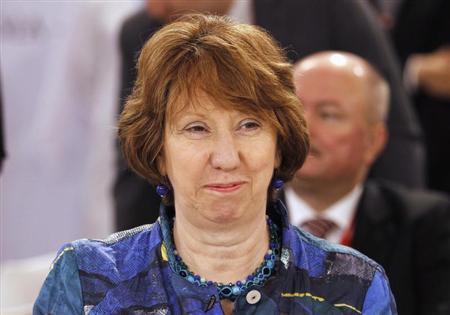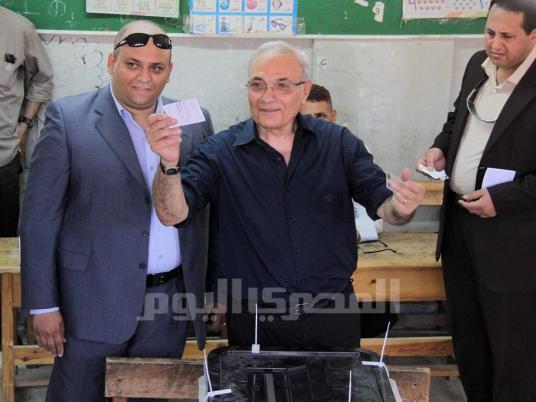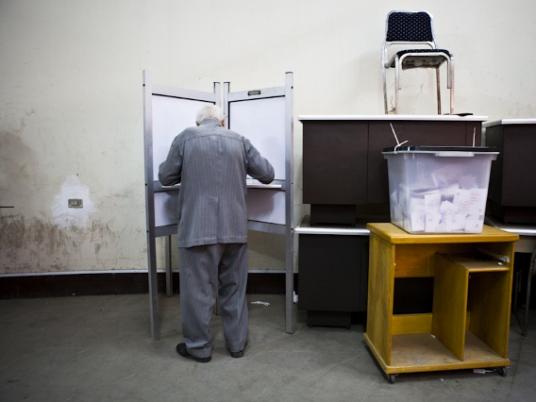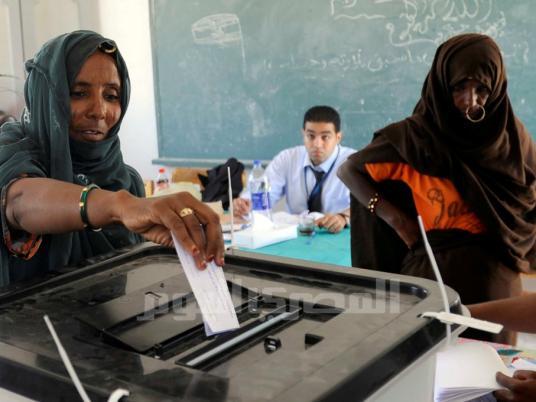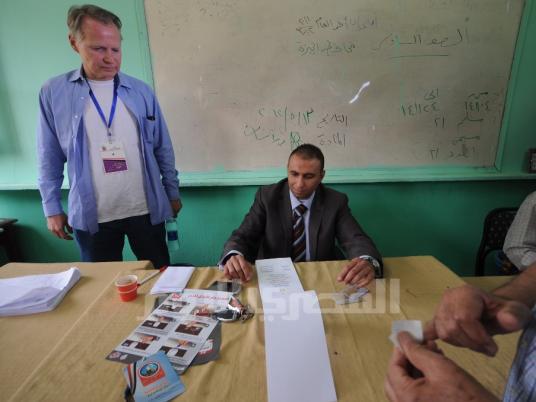
Despite high praise from the Presidential Elections Commission for expressing the free will of the people, the first round vote for Egypt's next president has been criticized by international and local election observers who say that restricted access for monitors and minor violations have undermined the overall transparency of the process.
Egyptians went to the polls on 23 and 24 May to choose a new leader among 13 presidential candidates to take over after the ruling military council formally steps down at the end of June. This first round will be followed by runoffs on 16 and 17 June.
Observers were granted permission by the Presidential Elections Commission (PEC), the judicial body overseeing the elections, to monitor polling stations across Egypt's 27 governorates.
But of the three international and 51 local organizations that were accredited, many received their permits only a few days before the vote. This meant that they were unable to oversee crucial processes leading up to the election, such as the compilation of voter lists and campaigning.
"The Carter Center was only able to conduct a limited mission focused on voting, counting and vote tabulation. As a result, the center is unable to reach a conclusion about the process as a whole," the center wrote in its preliminary report published on 27 May.
The Carter Center, which was set up by former US president Jimmy Carter, was one of three international NGOs accredited to monitor the elections. The other two were the Electoral Institute for Sustainable Democracy in Africa (EISA), founded in South Africa, and a lesser-known organization called the Shams Arab Network.
EISA also complained of "late accreditation" in its preliminary report, meaning it could not deploy long-term witnesses.
Local organizations say that, in addition to the delay in permits, the number of observers was restricted.
"We sent around 900 names of observers for accreditation, but only 700 were accepted four days before the elections," Ayman Soroor, a technical adviser to the One World Foundation for Development, told Egypt Independent.
One World was among a limited number of local civil society organizations allowed to officially observe the process. Many others decided to work outside the official framework given the restrictions put in place by the PEC.
"We decided not to work under this umbrella, because we didn't agree with the restriction by this committee. The conditions were very tough surrounding civil society," said Magdy Abdel Hamid, head of the Egyptian Association for Community Participation Enhancement (EACPE).
EACPE was one of 26 human rights organizations that formed a group called the Egyptian Delegation of Elections Monitors to informally observe polling stations. It also gathered 150 public figures including lawmakers, authors, artists and trade union members to assist. The coalition reached 25 governorates and successfully entered 30 to 40 polling stations in each, Abdel Hamid said.
Another limitation imposed over the two-day vote allowed accredited observers into polling stations for only 30 minutes, which monitors say prevented them from getting a complete picture.
"EISA teams were not able to witness the count, even for 30 minutes as prescribed," the institute said in its statement.
A last-minute order to mark some voters as ineligible may also have prompted confusion. Monitors said the PEC released a list of names of ineligible voters on Wednesday, the first day of the vote, and as people went to the polls, some were told they could not cast ballots.
According to the Carter Center, those barred were members of the security forces who are ineligible to vote by law.
EISA Executive Director Denis Kadima told Egypt Independent this also included people with a criminal record and top officials of the Mubarak administration.
It is unclear how many judges at polling stations received the lists or how well they implemented the instructions to cross off those names.
"There weren’t lists in all the governorates. Observers didn’t see lists in every polling station they went to, so we're not sure how inclusive or widespread the list was or its geographical reach," Sanne Van Den Bergh, a field director at the Carter Center, said.
"But we were able to see some people who were told not to vote because they were ineligible," she said.
Soroor said that his witnesses observed two cases in Fayoum Governorate and in the Giza neighborhood of Imbaba, where judges removed around 20 to 25 names from their list of voters. But this was done without an official list of names from the elections commission, Soroor said.
"When we asked them why they were crossing off the names, they said it is because these people are police. And when we asked them ‘How do you know?’ they said they just knew it," Soroor said.
Soroor added that he had not heard about the PEC-issued list referred to by Carter and EISA.
"We were checking the higher commission website daily and never saw that. And the judges didn’t tell us about the list."
Rumors have surfaced in local media about policemen voting, and Amr Moussa's campaign filed a complaint alleging that 900,000 conscripts voted. The suggestion is that they did so for Ahmed Shafiq, a leading figure of the former regime, who has made it to the runoffs against Muslim Brotherhood candidate Mohamed Morsy with 23.66 percent of the vote.
Delays in the opening of polling stations and intermittent closures throughout the day were among recurring violations reported by observers, who said these irregularities prompted some people to leave without voting. Other illegal or potentially problematic trends included the inconsistency of administrative processes, such as which finger was inked after people voted; ongoing campaigning by candidates and their supporters at polling stations; spending beyond the campaign finance ceiling; some cases of vote buying, and a lack of access for observers to the national aggregation of results by the PEC
"No civil society or media organizations were allowed to the national aggregation of results. This is disappointing, but we're hopeful that observers were allowed at the individual polling centers. We hope that candidate agents were able to collect the results nationally so they can conduct checks and balances against the final results," Van Den Bergh said.
On the other hand, observers said much of the process had improved from the parliamentary elections that began last November.
"We haven’t seen the distribution of money, food, and other materials to encourage people to vote for specific candidates, which we saw in the parliamentary elections. Some might have seen it but we didn't," Soroor said.
EISA said that its assessment of the polling and counting process indicates that "the will of the people has been freely expressed."
Although irregularities are widely being perceived as minor, the wider context of the election raises questions about its legitimacy. Observers have criticized the lack of a constitution that defines the role of the president and the failure to implement a law ratified by the ruling military council last March that prevents members of the former regime from running. This law could have applied to Shafiq, who served as prime minister under Mubarak, but has not been implemented because of questions about its constitutionality as well as the timing of its ratification. They also point to a law that prevents challenges to the final election results, and the continuation of the Emergency Law as problematic.
"In line with international best practices, the mission recommends that future electoral reforms consider the introduction of appeal mechanisms against the decision of the electoral authority … the resolution of election disputes is a crucial aspect of the electoral cycle," EISA said.

